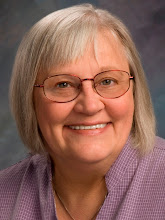As much as I'd like to blame, oh, I don't know, some person for what I consider to be the single most harmful element in our political system, I can't. By comparison, it would be so easy just to throw the bum out if there was a bum to blame. But no. The most immoral, unconscionable, reprehensible factor in politics is the exorbitant and shameful amount of money that controls our elected officials, our legislative bodies, our elections, and as a result, our lives.
Yes, we're talking here about campaign finance reform.
Right now, the projections are that this will be our first $1 billion election. This would not be the kind of milestone we want to celebrate, right? Oh, the adjectives that come to mind! Unconscionable, disgraceful, heinous, abhorrent, scandalous, offensive.
Roget's cannot contain the number of legitimate and made-up words I could use to describe this atrocity.
I cannot wrap my head around the numbers that apply to campaign spending. Nor do I have the ability to figure out which of the many proposals for campaign finance reform might actually work. I'm assuming that if I did use my inconsiderable clout to back one such proposal, I'd eventually find out that it was a mere smokescreen for even more dubious financial dealings.
So I've boiled this issue down to the barest elements of what I need to know. I need to know that McCain-Feingold refers to the wildly unpopular 2002 Bipartisan Campaign Reform Act, which in part prohibits political parties from using soft money, the donations raised by political action committees (PACs) and nonprofit political groups (such as 527s). PACs are special interest groups (think the ever-evil "big tobacco"); 527s are organizations created specifically to impact elections (think the anti-Kerry Swift Boat Veterans for Truth). Hard money, by the way, is a direct donation to a candidate or campaign.
That's all I need to know. That and the fact that candidates spend way too much money buying our votes. Let's see—I'm sure someone will correct me if I'm wrong here, so let me say up front that these stats are suspect, as is my math—in 2004, around 200 million people were eligible to vote, while about 125 million actually voted. Let's say that 140 million will actually vote this year, it being a year that should bring out lots more voters. Now let's say that half of those people would vote for their party's candidate regardless of who it is, so that whittles the number down to 70 million votes that are actually up for grabs. Oh, and let's figure that this year 10 million people have already decided that they will vote for third-party candidates who don't have any chance of winning and who raised very little money. So...that makes $1 billion divided by 60 million voters.* That means the two major-party candidates will have spent roughly $16 and change for each vote.
That doesn't sound like much, does it? Well, I can't speak for anyone else, but my vote is worth a whole lot more than that. In fact, it's priceless. I feel utterly cheapened.
Yes, it costs candidates a lot to get their message out. But not that much. Not $1 billion for one presidential race. Not so much that special interests end up funding the elections and calling the shots and ultimately running our lives. We need a better way to do this.
Among those trying to find a better way are Common Cause ("Holding Power Accountable"), Democracy21, the League of Women Voters, Ralph Nader's Public Citizen, Democracy Matters, and other groups that offer information on campaign finance reform. They are the ones who get my vote.
*I was an English major. If my calculation is wrong, you do the math.




